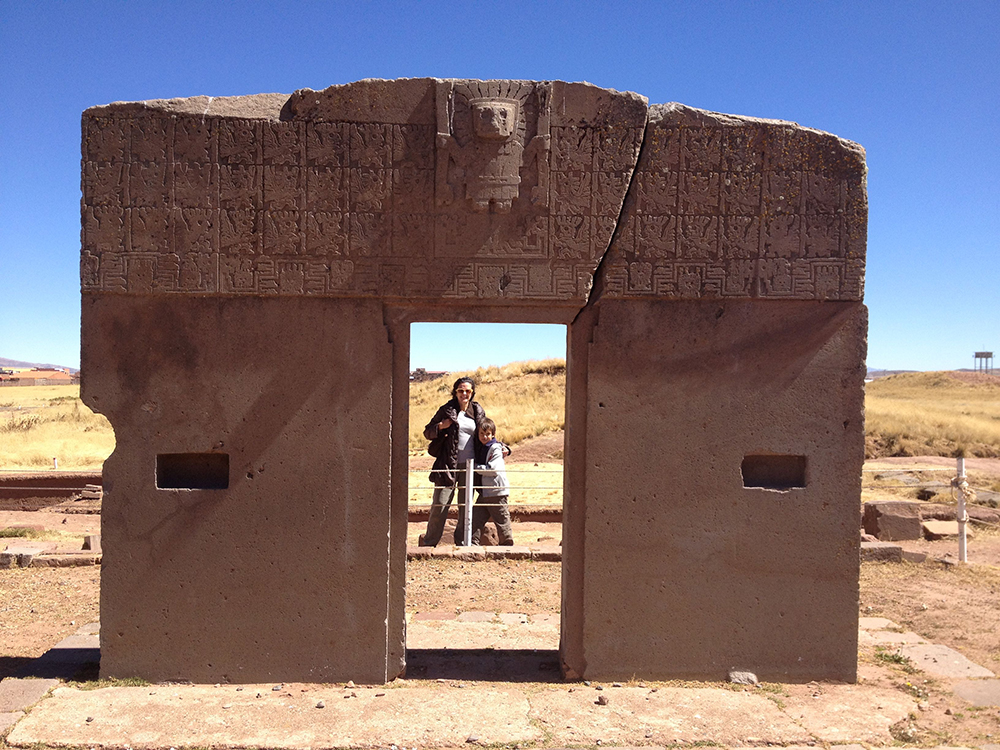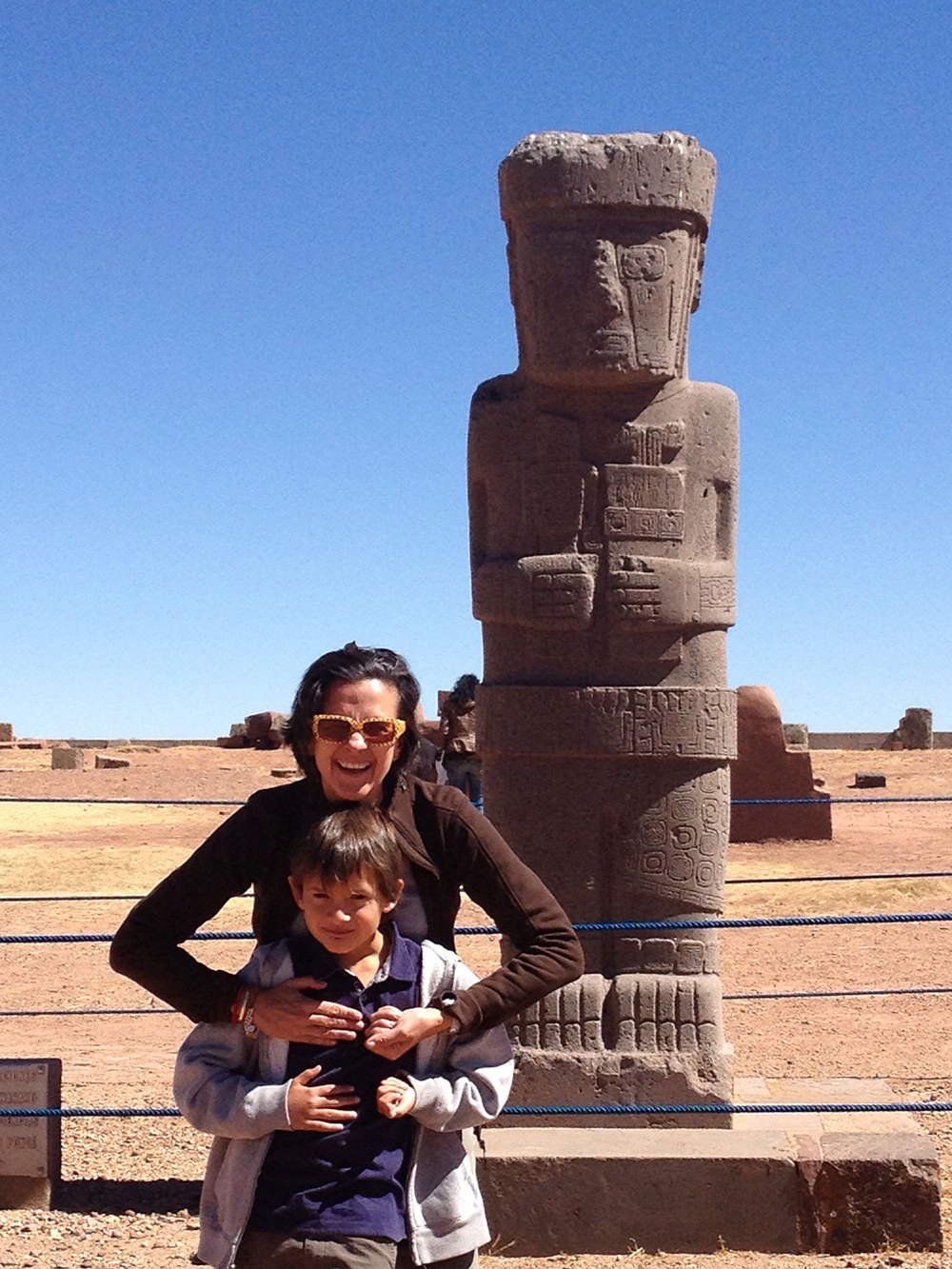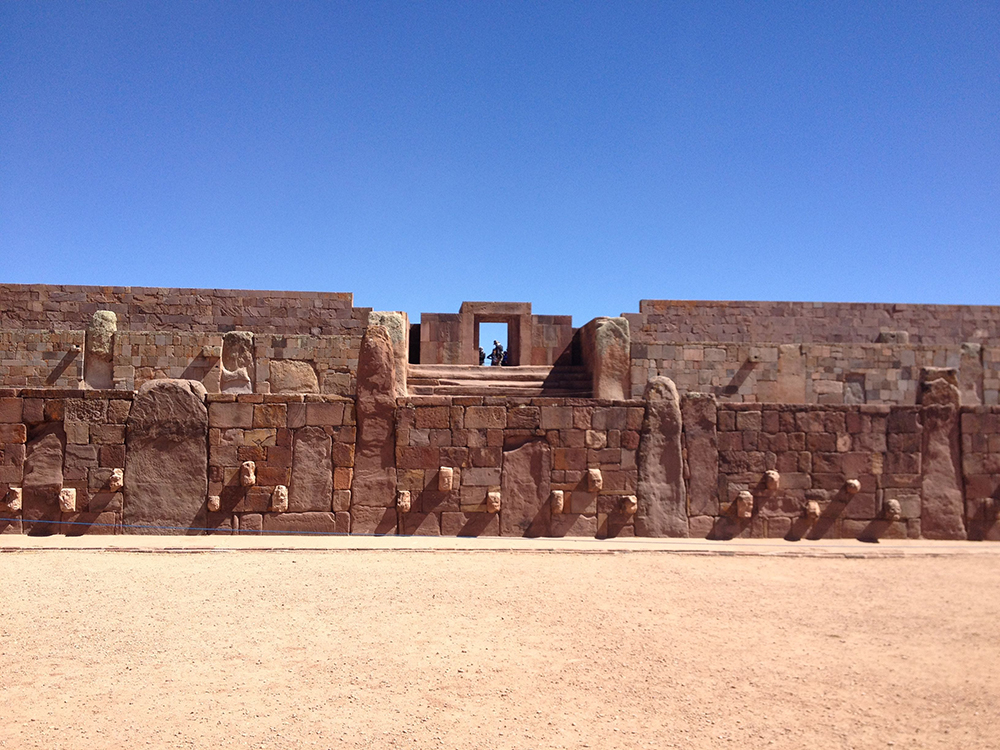by Marisol Mosquera
After our long journey across deserts, lagoons and the Salar de Uyuni and endless drives through Potosi and Sucre, arriving in La Paz by plane – and into our 5 star hotel Casa Grande – was the most unbelievable indulgence.
La Paz and Surroundings
The condition of Bolivia’s roads is better than 10 years ago, but not much better. A lot of the roads are unpaved or poorly paved, even around La Paz. Very bumpy and dusty experiences, so a well-appointed modern room was just what we needed. We flew Aero Bolivia from Sucre. This is a state-owned airline, which together with a small but growing private airline called Amaszonas cover all domestic routes. It was a good flight but we had a bizarre stopover in Cochabamba, where they asked us to disembark, to then walk through the airport and through security only to board the plane again. At least we were amused at our random encounter with the plane of Cristina Kirchner, who was on a State visit, (she visits Bolivia frequently these days), including red carpet along the runway, flower arcade and military band. Domestic flights in Bolivia are seldom direct.
One is rather short of breath on arrival at El Alto – one of the highest airports in the world at over 4,000 metres, a tiny airport with only one baggage claim belt. Walk outside on a typical clear winter day, without a single cloud in the sky, and the first thing you see are the wonderful views of the imposing peaks of the Cordillera Real: Huayna Potosi and Illimani among many other smaller snowcapped peaks. As we drive down to La Paz, the three most remarkable characteristics of this city are immediately evident and never leave you: the astounding mountain views, the dramatic and unique (I would say) topography of the city and the incredibly fun street scenes, where the contrast between the western and native population are crystal clear. (around 65% of the population in Bolivia is indigenous, the highest in all of South America). You can see ladies with big skirts and long black braids, and tiny bowler hats on their heads everywhere both at El Alto and La Paz. We even started a game of spotting the cholita given how many of these ladies are around, in the centre of town and most surprising, in the residential areas. We descended approximately 400 metres and we arrived at (what we felt to be) an absolutely amazingly luxurious hotel.
During my past visits of La Paz, I had stayed in the chaotic and noisy centre, seen the sights and that’s it. This trip is different, and I feel I am getting a better grasp of the city, partly because we are staying in the Zona Sur, or residential area of La Paz and because we have friends who have entertained us. There is the centre of La Paz, where the colonial buildings and the markets are, then there is Sopocachi, close to the bohemian area with many bars and restaurants, and then Obrajes and Calacoto which are the residential areas or also called “Zona Sur” and also located at lower altitude.
Hotel standards are not great in La Paz, but there are a number of recommendable options which we are now familiar with. Vicky and Nora stayed at the Europa which is the best 3/4 option high-rise type hotel to stay in the centre of town, there is El Consulado and La Casona, two boutique options also in the centre where Simon will stay, and the two best options as far as hotel standard is concerned, would be modern high rise hotels Casa Grande and Camino Real in the Zona Sur. They are not luxurious but they are fine, and the service is excellent. I stayed at Casa Grande and I would recommend staying in the Zona Sur. It is a is lively area, with shops, cafes and restaurants, and it is quieter and less chaotic than the centre. And the centre is only 25 minutes away with heavy traffic and 15 minutes away later in the evening. If you arrive from sea level and are worried about acclimatising, there is DM Andino, an excellent 5 star option that opened just a year ago. Located 45 minutes from town and 30 minutes from El Alto, it lies at 2600m and is perfect for the first couple of nights in order to acclimatise, and enjoy the lovely weather.
Obviously having friends in a new city is key, and we were lucky to experience the best type of Bolivian hospitality by our friend Mariano Ugalde and his family. Mariano’s father is Bolivia’s most renowned artist, producing cutting edge art pieces in a variety of media, and representing Bolivia frequently at international art shows. They took us to lunch to an amazing spot in a neighbouring village now adjacent to La Paz, where we had a delicious lunch overlooking Illimani. We also went to two of La Paz’s best restaurants, La Comedie (very atmospheric, located in Sopocachi) and La Suisse (more traditional), both excellent and very recommendable options. The ice cream parlour Rinascimento near our hotel, not only makes and sells the most amazing ice cream but they also train and employ street children to work at the store. And the “Pacenia” saltenias are not to be missed.
Visiting the pre-Inca site of Tiwanaku was interesting and so was visiting the Valle de la Luna. But for me, the highlight of La Paz is being there and looking around at the amazing street scenes and mountain scenery. The crafts in La Paz must be among the best in South America, so do leave time at the end of your trip to browse markets and stores in the centre.
—
This is one of a series of reports from Marisol’s trip across Chile, Bolivia and Peru in July 2012, for full details: Sand, Salt, Sierra and Selva.





